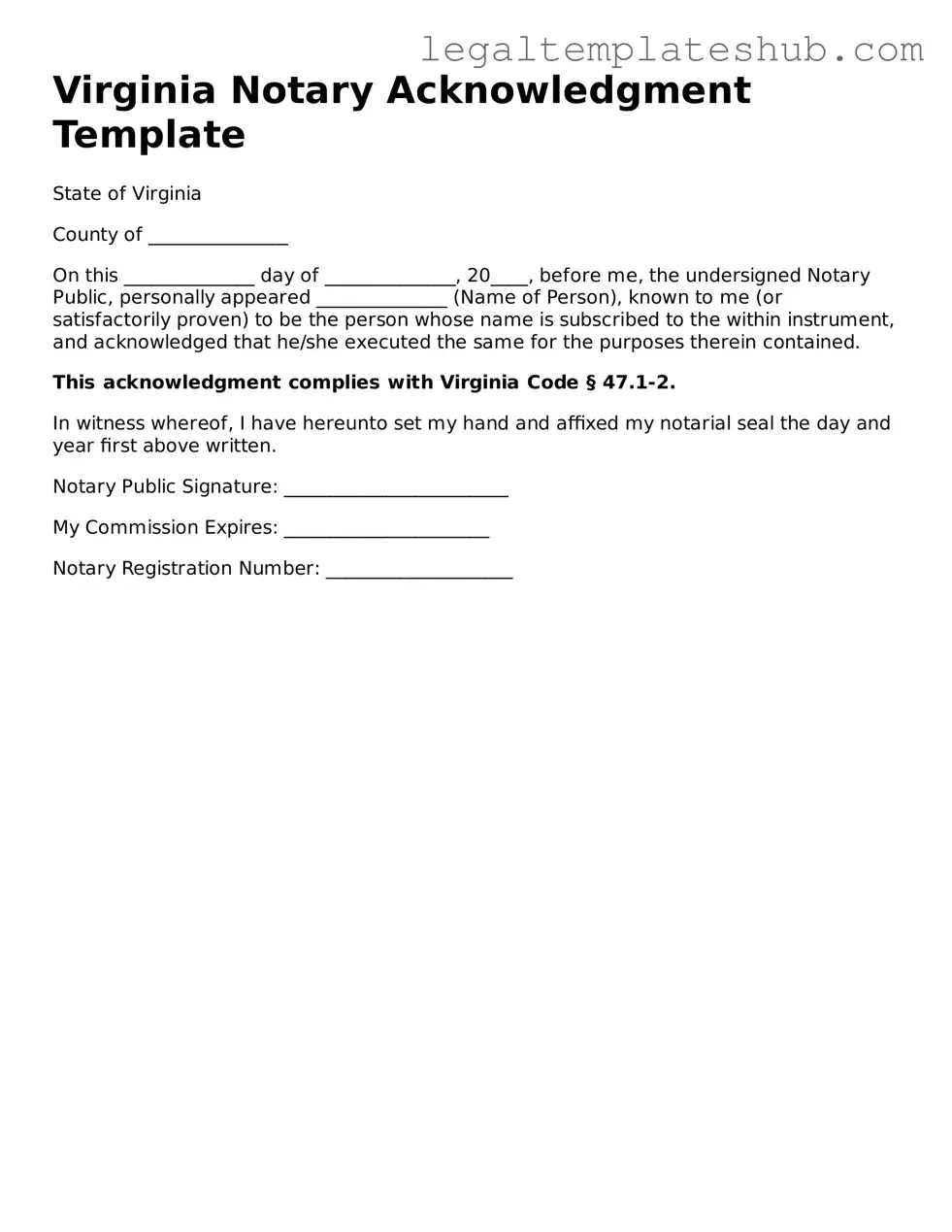Printable Notary Acknowledgement Document for Virginia
The Virginia Notary Acknowledgement form is a legal document that verifies the identity of a signer and confirms that they signed a document willingly and without coercion. This form is essential for ensuring the authenticity of important documents in Virginia. If you need to complete this form, click the button below to get started.
Access Editor
